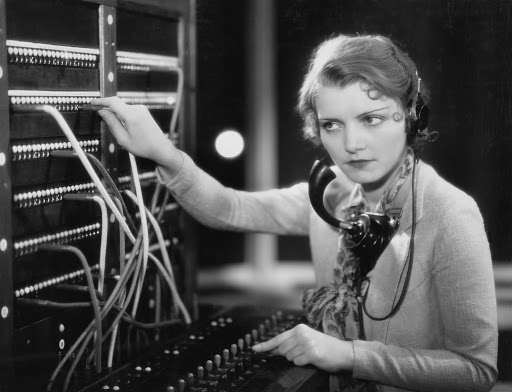Story by Joe Edwards
I’ve been reading that our telephone system is becoming so sophisticated, that soon we won’t even have to push the buttons; that we can just speak the number into the phone and it will dial itself.
Shucks, we could do that in our little town 50 years ago. All I had to do was pick up the phone and say, “Aunt Birdie, call Edna for me,” and Edna’s telephone would ring – two long rings and two shorts and two more longs, and Edna would answer, if she were home, that is.
I she didn’t happen to be home, the telephone system would magically know that, and Aunt Birdie might say, “She’s over to Mary Lou’s house, Joe Lee (in small Midwestern towns, the kids were always called by their first and middle names: Joe Lee, Gary Lynn, Bobby Joe, Gary Wade, Billy Ray, and every little town had a Bubba). Do you want me to call her over there?”
“No,” I might say, “just call Joe Swadley for me instead, and if she calls through later, just tell her I’ll be out there tonight.” Edna’s number was actually 22F22; not that it mattered, because it was simpler just to ask for someone by name.
Central was also responsible for causing the town fire siren (mounted on the water tower) to sound at noon every day, letting the townsfolk know the day was half over, although I suspect most folks had clocks and watches. Folks were incline to set their clocks by the noon siren, and many times that may have caused a few problems, because Aunt Birdie was known to doze at the switchboard now and then, and noon would sometimes come slightly afternoon.
Central didn’t quite trust the siren when it came to announcing fires, so Aunt Birdie would phone each of the volunteer firemen in the event they hadn’t heard the call, and would also phone Gip Washam, the road grader driver, because the fire engine would seldom start and have to be pushed to the fire by the road grader, a spectacle that excited the town dogs greatly, and the procession thus created was a sight to behold, indeed.
More often than not, the house that was on fire burned to the ground, because there was a limited number of fire hydrants, the truck carried only a short hose, and since the engine wouldn’t run, there was no pressure to expel the water in the truck mounted tanks.
Central provided not only these needed services, but was the main source of entertainment as well. Everyone was on a “party” line which meant that up to eight people shared a phone line. When Aunt Birdie would ring someone, all eight phones would ring, the intended recipient knowing the call was for him only by his code – a combination of long and short rings. Of course everyone on the line could listen in and usually did. It was a great source of comfort to know your neighbors cared enough to pick up their phones and listen in when someone called you.
“Annie? This here’s Mabel.”
“Yes Mable, how are you?”
“I’m fine, Annie. I guess you heard about Mrs. Nivens’ girl?”
Fanny Mae? Is she in a family way again?”
“Yes, and her husband gone off to the war. I’s a downright shame.”
And on it would go, until as many as sixteen people had the story, all in one phone call. Let modern technology do that!
Many’s the time Aunt Birdie would call old Doc Holmes at someone house where he was making a house call for the sniffles, and send him off to where Willy Balker had his hand caught in the threshing machine, or some real emergency like that. I don’t see a button anywhere on my telephone that can accomplish that.
So all we have to do is lift the receiver and speak the number, huh? Big Deal.





